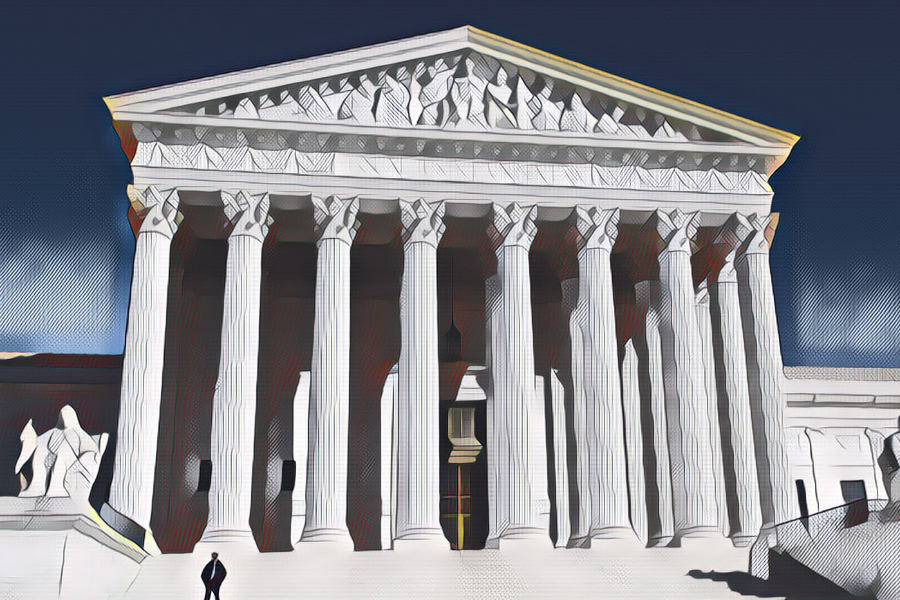SCOTUS to hear case on taxpayer funding of religion

The U.S. Supreme Court is again deciding what weight to give a state constitutional provision designed to prevent government funding of and interference in religion. BJC filed a brief in Espinoza v. Montana Department of Revenue to defend the law’s distinctive treatment of religion.
Just two years after a decision that required the state of Missouri to include churches in a state grant program for playground resurfacing, the U.S. Supreme Court is now reviewing a state law designed to avoid funding of religious education.
Espinoza and the 2017 case of Trinity Lutheran Church v. Comer both involve the interpretation and application of state “no aid to religion” provisions. More than 39 states have state constitutions that categorically ban government funding of churches. Many of these provisions pre-date the U.S. Constitution’s First Amendment and protect against government funding of religion in more explicit terms than the Establishment Clause of the First Amendment.
In Espinoza, parents of students who attend private religious schools challenged a state tax credit program that did not include religious schools. The program provided a dollar-for-dollar tax credit for donations to an entity that pays tuition at private schools. The parents’ case went to the Montana Supreme Court, which struck the program, ruling that the state constitution forbids the creation of a tax credit program for donations that support private religious schools. Now, the U.S. Supreme Court will decide whether Montana’s decision to restrict such a program violates the Free Exercise Clause of the U.S. Constitution.
In Trinity Lutheran Church, the Court held that the state of Missouri violated the Free Exercise Clause of the First Amendment when it denied the participation of a church-owned preschool in a grant program, despite state constitutional provisions aimed to prevent state funding of churches.
BJC filed a brief defending such state constitutions as a valid and historical way of preventing government-funded religion. While the Court found that Missouri’s exclusion of a church-owned school was not allowed under the Free Exercise Clause, its decision was explicitly limited. In that case, the Court distinguished the case of a state’s denial of participation in a program based on religious “status” from a state’s avoidance of government funding for a religious “use.” The Court found denial based on status unconstitutional, but the Court did not address avoidance of funding for religious use. An important footnote in theTrinity Lutheran Church decision, written by Chief Justice John Roberts, specified that the case was only about playground resurfacing and not religious uses of state funding.
In Espinoza, the Court is being asked to require that the government provide benefits to religious institutions whenever it does for private secular ones. As in Trinity Lutheran Church, BJC’s role in this case is to defend the distinctive treatment of religion in law, and to counter the false and damaging narrative that misrepresents the prohibition on government-funded religion. Both avoiding government sponsorship of religion and preventing government interference with religious practice are important means of protecting religious liberty.
BJC’s brief argues it is ahistorical and inaccurate to claim that the “no funding” rule discriminates against religion. Instead, the “no funding” principle, which applies without regard to any particular religion, is deeply rooted in our religious liberty history and protects the integrity of religious institutions. With government money comes government rules.
Proponents of vouchers and other government efforts to fund religious schools often cite evidence of anti-Catholic hostility in the 19th century. They argue the “no funding” rule is the result of this animus. But, the “no funding” principle pre-dates that period and is not related to those concerns.
While the Supreme Court has held that the First Amendment’s Establishment Clause does not prohibit certain student aid programs that are neutral with regard to religion, it has never held that the Free Exercise Clause demands government funding of religion. To do so would, in effect, re-write state constitutions and upend the way religious liberty is protected in our legal tradition.
BJC’s brief was written with Dr. Steven Green, a professor of law at Willamette University and the nation’s leading expert on religious liberty and state constitutions.
The Supreme Court will hear oral arguments in the case January 22. For the latest information and to read BJC’s brief, visit BJConline.org/Espinoza.
Holly Hollman is general counsel of BJC.
This column appeared in the fall 2019 edition of Report from the Capital. You can read the entire magazine as a PDF or a digital flip-through edition.




